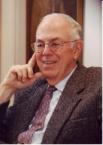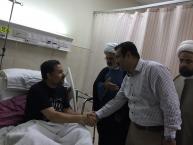 |
Remembering Harold H. (Hal) SaundersI was happy to see that the New York Times obituary on Hal quoted Henry Kissinger saying Hal was “an indispensable member of the Middle East team” who was “especially important in emphasizing the psychological and moral dimensions of problems.” I worked for Hal as regional policy adviser in the Bureau of Near Eastern and South Asian Affairs, and one of my jobs was congressional relations. When President Carter nominated Hal for the post of assistant secretary of state in that bureau, I accompanied him for his hearing by the Senate Foreign Relations Committee, and did a briefing memo for him... |
 |
What Next After the Oslo Accords Collapse? At the UN General Assembly meeting, Palestinian leader Mahmoud Abbas declared that in light of Israeli breaches, Palestine would no longer be bound by the Oslo Accords - a series of agreements between Israel and Palestine. The intent of the Accords was not to directly establish peace between Israel and Palestine, but rather to create a framework and process which would build trust and eventually lead to a permanent settlement, with final talks to occur in 1999. |
 |
Harold H. (Hal) Saunders (1930-2016)
Hal Saunders died peacefully at home, on the morning of March 6, 2016. Since the 1980s... |
 |
Colombia's Protracted Social Conflict: Is it Time We Listened to the Fighters?For over fifty years the Colombian government and the Revolutionary Armed Forces of Colombia-People’s Army (Fuerzas Armadas Revolucionarias de Colombia – Ejercito Popular) or FARC-EP, have been locked in a vicious cycle of violence, mixed with sporadic negotiations. As the March 23rd deadline for a peace deal quickly approaches, Colombians seem poised for peace. Even a recent Washington Post article praises Plan Colombia - a United States military and diplomatic aid initiative aimed at combating Colombian drug cartels and left-wing insurgent groups with the goals of ending the... |
 |
The Shia Sentinel: Fighting for a Democratic Dream Many years of authoritarian rule and grievances in Tunisia ignited a popular wave of protests demanding social and political change. These efforts, which later became known as the Arab Spring, quickly spread to other countries in the Middle East and North Africa. |
 |
South Caucasus Conflict Resolution S-CAR welcomed a new Visiting Fellow for the Spring semester, Ms. Dina Alborova, a Professor at the South Ossetian State University’s Department of Political Science and Sociology. Dina is working with an APT Team on South Caucasus conflict resolution, learning about the pedagogy of conflict resolution and about religion and conflict resolution. According to Dina, she is the first person in many decades to have left South Ossetia for a fellowship in the United States. |
|
|
Linda Kryvoruka, Graduate Certificate StudentLinda Kryvoruka, a soon-to-be retired nurse anesthetist, is currently enrolled in the World Religions, Diplomacy, and Conflict Resolution certificate program at the School for Conflict Analysis and Resolution (S-CAR). “The prospect of becoming a student in this field will fulfill my lifelong mission of always serving others, endlessly learning, and broadening my understanding of different religions, and cultures in regards to solving conflicts.” Linda describes this change not as an end to her nursing career, but rather “a blank canvas of opportunities for her to apply the experiences and training she has learned, and to... |



